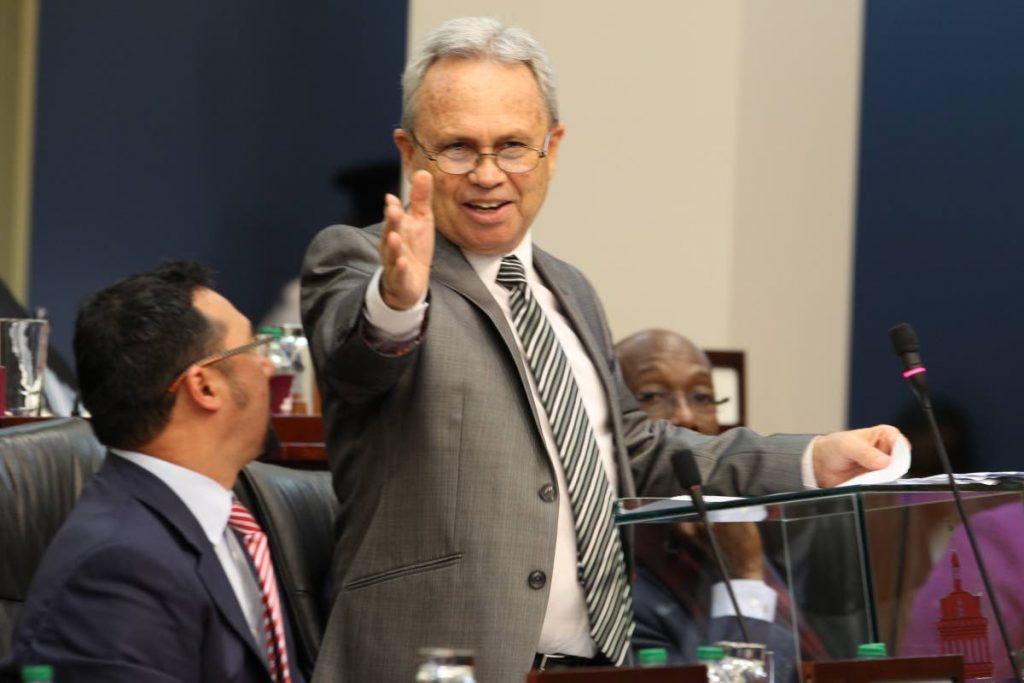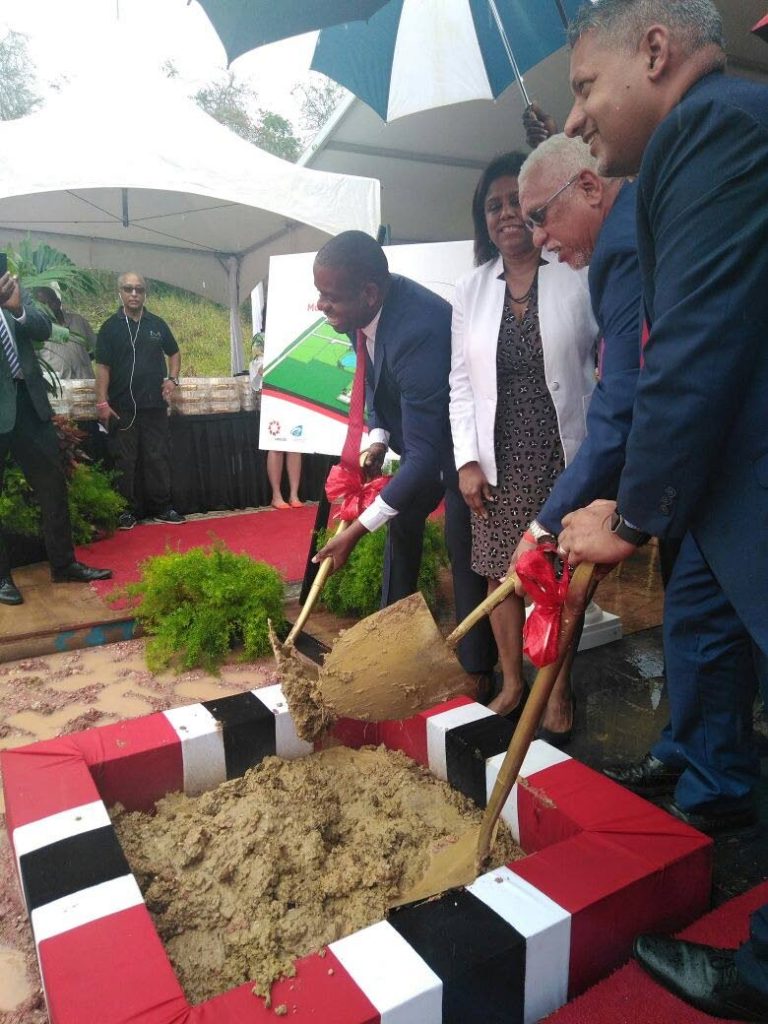2018 budget,

The mid-year review provides TT with an opportunity to get an update on projects/programmes announced at the start of the fiscal year.
Hinting at good things to come when he presents the review of the 2018 budget in Parliament today, Finance Minister Colm Imbert has said there appears to be a stabilisation of the economy, in addition to some growth.
Last Friday he also spoke about signs of a recovery in the energy sector – average daily natural gas production has gone up by more than 15 per cent over the last 12 months.
"The gap between supply and demand in the natural-gas sector is closing steadily and we hope that by next year, all of the requirements of the gas-based industries can be satisfied. We have also seen a rebound in oil prices from a low of US$28 a barrel in 2016 to over US$68 a barrel as of May 4, 2018."
While this is welcome news, many people are looking forward to an update on previously announced projects, incentives and tax reforms. Chief among them, the Revenue Authority, property tax and an export allowance for manufacturers.
Revenue Authority
The process to establish a Revenue Authority, which would see the Board of Inland Revenue and the Customs and Excise Division merged to form a more efficient tax collection system, began in 2008-2009.
However, as Imbert reflected during a November 2017 television interview, the Patrick Manning administration "got cold feet (as) job security became the main issue. Our administration got scared and backed away because of the potential industrial relations conflict. Mister Manning was calling a snap election at the time and he felt it was an issue he did not want to go into an election with."
During the 2018 budget, last October, Imbert said Government intended to "present legislation establishing the Revenue Authority to Parliament by December 2017...We propose to have the Revenue Authority operational in 2018."
On January 17, Minister in the Finance Ministry Allyson West, issued a statement saying Government "is seeking to implement the decision to establish the TT Revenue Authority in the current fiscal year."
West said the ministry had launched a programme of stakeholder engagement, in which information is shared with national stakeholders including the staff at the Inland Revenue and Customs and Excise Divisions. As the stakeholder engagement continues, there will be an ongoing effort to provide answers to questions raised.
Property tax
The Property Tax Act was also first introduced under the Manning administration. Passed in 2009, it replaced the Land and Buildings Tax Act but was suspended by the People's Partnership administration in 2011.
More recently, on February 2, the Property Tax (Amendment) Bill, 2018 and the Valuation of Land (Amendment) Bill, 2018 were introduced in the House of Representatives.
As stated on Parliament's website (www.ttparliament.org), this was done "as a further step in the implementation process," as both bills seek to make revisions to the the Property Tax Act, 2009 and the Valuation of Land (Amendment) Act, 2009. Both were assented to by the President on December 31, 2009 and were expected to come into operation on January 1, 2010. However, Section 52A of the Finance Act, 2015 provided for a waiver of the property tax for the period January 1, 2010 to December 31, 2015.
In piloting amendments to the Property Tax Act – and the Valuation of Land Act – on March 2, Imbert said one proposal would see property owners charged 10 per cent interest on property taxes that remain unpaid by March 15 annually.
Export allowance
An export allowance for the manufacturing sector was also mentioned in Imbert's 2018 budget presentation.
"We will establish a framework that would allow a reduction on tax for revenues generated from incremental exports to existing markets. Further details will be provided in the Finance Act 2018."
This measure was to take effect from January 1, 2018 however the details of how such an allowance would be calculated and companies reimbursed/given a waiver are still to be worked out.
Commenting briefly on it during the May 4 launch of the Export Import Bank's (Eximbank) Forex Facility, Imbert said there should be a re-introduction of an export allowance, as put forward by Trade Minister Paula Gopee-Scoon and proposed by the TT Manufacturers' Association since last year. Imbert said the proposal "will go before Cabinet in the next two weeks or so."

Progress has also made on the proposed Agro-processing and Light Industrial Park in Moruga. In this case, a sod-turning ceremony took place yesterday at the site – #2 Mile Mark, Saunders Road.
Once completed, the park will house five factory shells on more than 18 acres of lands and will be dedicated to processing and manufacturing products which originate from agriculture, forestry and fisheries.
The Trade Ministry, in announcing the sod-turning ceremony at which Gopee-Scoon delivered the feature address, said, "the park, through its targeted activities, is expected to meet the needs of the wider catchment, providing in this case, facilities which would stimulate further economic activity in Moruga and environs."
Music & energy
Among the items implemented since the budget presentation are the Live Music District programme which was launched on March 8, the aforementioned Eximbank Forex Facility on May 4 and a ten per cent tax on all cash winnings from the National Lotteries Control Board (NLCB) which came into effect on December 1, 2017.

Imbert also announced a standardisation of the royalty rate paid by the energy sector. It was ten per cent to 15 per cent on crude oil and a minimum for natural gas – $0.015/mmcf.
The new rate, of 12.5 per cent applicable on the extraction of all gas, condensate and oil, came into effect on December 1, 2017.
"To avoid revenue leakage and to avoid cheating, the fair market values for our oil and gas for the computation of royalty will be fixed by the Petroleum Pricing Committee a feature of statute that has not been used for many years," Imbert said.

Comments
"2018 budget,"